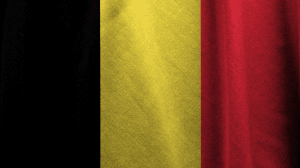Al-Haq, Al Mezan Center for Human Rights, and the Palestinian Centre for Human Rights strongly welcome the introduction of a bill in the Belgian Parliament proposing a ban on the importation of Israeli products produced in the occupied Palestinian territories and calls for its rapid adoption to bring Belgium in line with its international legal obligations.
The text of the bill to ban trade with settlements in occupied territories (including other violations of international law and human rights in the occupied territories) was tabled at the Belgian Federal Parliament and has been registered and co-signed by 5 of the 7 governing parties, including the socialist parties, PS, Vooruit, and the Green parties, Ecolo, Groen, and the Christian Democrats, CD&V. Els Van Hoof, Chair of the Foreign Affairs Committee of the Belgian Parliament and Member of Parliament for the CD&V party, submitted the draft legislation for a national ban on trade with occupied territories.
The bill was tabled in the context of Israel’s ongoing aggression against Gaza and the West Bank, killing more than 11,078 Palestinians in Gaza as of the 10 of November and 177 Palestinians in the West Bank including East Jerusalem as of the 11 of November. The measure prohibits the import, marketing, and sale in Belgium of products that are closely linked with serious human rights and international law violations in occupied territories anywhere in the world, and as such, would be applied uniformly to the case of Israeli products from the occupied Palestinian territories and all similar situations.
The proposal will ban trade in Belgium of products whose import, marketing and sale would contribute to sustaining certain serious violations of international law and human rights. These violations include the forcible transfer of Palestinian civilian populations, and the appropriation and destruction of Palestinian property to build and expand settlements, amounting to pillage, which is prohibited under Article 49 of the Fourth Geneva Convention, the Hague Regulations of 1907, and considered war crimes under the Rome Statute of the International Criminal Court.
All EU states are obliged to end their trade with Israeli goods produced and exported from the occupied Palestinian territories in light of the serious violations of international law, human rights, and grave breaches of international humanitarian law, the trade in such goods contributes to sustain. UN Security Council resolution 2334 (2016) requires that States distinguish in their dealings between the territory of the State of Israel, and the Occupied Palestinian Territory, and Common Article 1 of the Geneva Conventions requires that States use the means available to them to ensure respect with international humanitarian law.
States must comply with their customary duty of not aiding and assisting the illegal settlement of occupied territory, including through the handling of goods and services which are effectively the proceeds of crime derived from appropriated property in the occupied territory. Trading in goods and services produced in occupied territories using unlawfully appropriated property facilitates the maintenance of the situations created by unlawful acts of appropriation by the occupying power, and aids and assists in the continuation of such unlawful acts of appropriation. As such, States must ensure that the import, marketing, and sale of settlement goods and services is prohibited within their jurisdictions.
All third States are reasonably presumed to know that Israel produces and exports goods from illegal settlements in occupied Palestinian territory, and are aware of the circumstances of production of such goods as entailing serious breaches of international law. They thus have a responsibility to immediately cease their further commerce in such goods in order not to aid and assist in the commission of internationally wrongful acts and the maintenance of the situations created by them.


